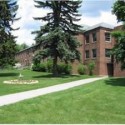New coalition attacks 'culture' of alcohol use
In Dane County, more young people between seventh and 12th grades are abstaining from alcohol than regularly using it, according to a 2005 assessment. Still, the fact that nearly 30 percent of local youth are considered regular drinkers is a cause for concern for many.
About 30 people turned out Monday night for the first meeting of a new coalition looking to combat alcohol abuse in Dane County. Every seat was filled in an upstairs meeting room at the Exhibition Hall of the Alliant Energy Center.
Participants included nurses, teachers, alcohol and drug counselors, school counselors, administrators, local officials, religious leaders, business people, activists and community organizers.
The coalition is scheduled to meet for a year. Two other initial sessions are scheduled for 6 p.m. Tuesday and 6 p.m. Monday, Jan. 12.
Monday night’s meeting included a presentation by experts on youth and drinking. Tuesday’s meeting will center on the impact of alcohol advertising on youth. Next week’s will give an overview on alcohol issues.
Eighty people have signed up to come to the three organizational meetings.
County Executive Kathleen Falk put the coalition together as part of her initiative in 2009 to combat alcohol abuse.
Falk called the coalition’s work incredibly important. It is “standing up and saying enough is enough and we can do something about this,” Falk said. “The biggest factor that will make a difference is you.”
Those attending the meeting said that as entrenched as alcohol culture is in Wisconsin, and more locally in Dane County, it’s imperative to examine the situation and come up with solutions.
“The culture of smoking has become unattractive. I don’t know how we get this culture to become unattractive,” said Fran Genter, administrator of Dane County Human Services’ jail diversions programs.
Francis Hough, a public health nurse in south Madison, said she’s had five friends and family members killed by people who have been under the influence, mostly drunken drivers.
Yet she doesn’t think the problem is so deeply rooted that nothing can be done.
“New generations need to grow up on new ideas. We have to start giving new messages to the next generation,” Hough said.
She used racism as an example, noting that despite the country’s long legacy of racism, it just elected Barack Obama the first black president.
“So things do change. A movement in the ’50s had an impact on today,” Hough said.
Scott Caldwell and Connie Bettin, two experts on youth and alcohol, gave a presentation, “Dane County Youth and Drinking: What the Data Shows and What We Should Do About It.”
Caldwell is an alcohol and drug counselor with UW Hospital’s Adolescent Alcohol/Drug Assessment and Intervention Program. Bettin is prevention services manager at Dane County Human Services.
They cited numbers from a 2005 survey on alcohol use among young people in Dane County — 2008 data should be available soon — that showed 43 percent of those surveyed had not had anything to drink within the last 12 months. Meanwhile, 29 percent were considered “current” or “regular drinkers,” having had one or more drinks in the past 30 days.
The ongoing survey of youths in seventh through 12th grades questioned more than 23,000 students, 66 percent of them high schoolers.
Of the regular high school drinkers, 78 percent reported binge drinking, or having five or more drinks in one setting.
“Teens who drink a lot are more likely to be involved with other drugs,” Caldwell said, presenting statistics that showed that 63 percent of regular drinkers used marijuana compared to just 3 percent of those who abstained from alcohol.
Caldwell cited figures published in the Journal of the American Medical Association in 2003, showing that underage drinkers account for $20 billion per year in alcohol sales. The same study shows that in 1999 underage drinkers drank nearly 20 percent of the alcohol consumed in the United States.
Caldwell and Bettin recommend getting messages to children as early as K-6, or even preschool. It is important to target developmental transitions, utilize multiple strategies across multiple levels and settings, and deliver consistent, community-wide messages, they said.
What does not work, they said: scare tactics, messages to “drink responsibly” and confrontational interventions.
Instead, they advised focusing on increasing a young person’s perception of risk for alcohol effects, addressing alcohol accessibility and alcohol marketing to youths, and involving parents and families.
Mirella Vitrano, a concerned community member who works with children, said she was shocked to learn how many middle schoolers are drinking, and drinking excessively, as young as 10 years old.
“I’m just flabbergasted. I wonder what we can do as a community,” she said, adding that it takes a village to raise a child.
Schools need to take a large role in the solution because parents aren’t always available, she said. Some are single parents, and others may be working two jobs, Vitrano added.
“I’m concerned about what this means for their adult lives,” she said.
source: Capital Times


